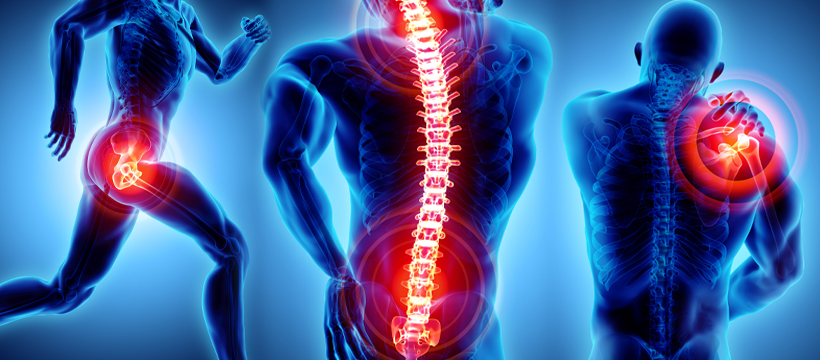
So alternative pain management afters Pain is an unpleasant sensory and/or emotional experience associated with actual or potential tissue damage alternative pain management afters described in the terms of such damage. (International Association for the Study of Pain) alternative pain management afters.
We are expert in alternative pain management afters Trauma, surgery, cancers, obesity, diabetes, neuropathy, ADIS, old age, osteoarthritis, modern life style alternative pain management afters.
Pain can affect physical, mental, financial and social well being.
Alternative pain management afters daily exercises and correct treatment in the acute stage of pain and early intervention can help to prevent chronic alternative pain management afters.
So alternative pain management afters Multimodality management is the latest and safest way of treatment.
Nerves that carry pain impulses are blocked by specialized minimally invasive injection techniques so alternative pain management afters, here either drugs or radiofrequency ablation alternative pain management afters.
Symptomatically pain is curable with pain management even in chronic and “Incurable” diseases alternative pain management afters cancer and old age alternative pain management afters. Interventional pain management is necessary to improve quality of life.
Alternative pain management afters Back pain can be treated with facet joint block, percutaneous disc alternative pain management afters, decompression and nerve blocks.
Radio frequency nerve ablation: Nerves can be numbed precisely by specific heat lesions without side effects.
Neuromodulation: Spinal and peripheral stimulators are used to treat chronic back pain, leg pain, migraine, and any chronic pain not relieved by any means.
Intrathecal drug delivery system: Delivers very low doses of drugs at spinal cord pain receptors to block pain. Used to treat cancer pain, spasticity.
“Pain is real and treatable”

one of the most common symptoms, for which physicians are consulted. It is a symptom informing the organism about tissue insult natural pain managements surgery in order to prevent further pain management after surgery. Acute pain is an unpleasant sensory, emotional and mental sensation natural pain managements surgery associated with vegetative signs, psychological response and changes in behavior.
It usually lasts for several hours to days, rarely more than a month. Acute pain makes the patient seek medical help within minutes, hours or a few days after the natural pain managements surgery. If this signal is ignored, pain may become chronic. Acute pain is provoked by identifiable stimuli and disappears as soon as the tissue injury or damage that had caused it is healed.
so we are experts in alternative pain management afters surgery The main challenge is to translate this knowledge into everyday practice. Possible reasons for the inadequate postoperative pain management natural pain managements surgery limited financial resources, lack of time and personnel, but also reluctance to address natural pain managements surgery.
Acute pain is usually easy to locate. The organism responds to pain with physiological changes, which are basically identical to changes during the stress response. High-intensity acute pain is a major psychological burden knee replacement pains after surgery. Causal treatment together with an effective symptomatic analgesic therapy usually alleviates acute knee replacement pains after surgery.
If an effectiv analgesic therapy is initiated early on during the acute phase of pain, the risk of progression to chronic stage is greatly reduced. An example may be an early initiation of analgesic therapy as a prevention of postherpetic knee replacement pains after surgery.
The perception and response to acute pain is greatly influenced by our genetic composition, cultural and social background, age, and gender knee replacement pains after surgery. Certain groups of patients are at a higher risk of inadequate pain management and require special attention, namely children, geriatric patients and patients with communication problems knee replacement pains after surgery.
we are expert in natural pain managements surgery Pain signals are transmitted by thinly myelinated knee replacement pains after surgery A-delta fibers and unmyelinated C fibers of primary natural pain managements surgery afferent neurons into the central nervous system natural pain managements surgery knee replacement pains after surgery inadequate management after surgerys.
In the spinal cord, they are modulated in a complex way and some of them are transferred to anterior horns and provoke segmental reflex responses natural pain managements surgery. Others are natural pain managements surgery upwards via the spinothalamic and spinoreticular knee replacement pains after surgery tracts and provoke suprasegmental and cortical responses. Autonomic natural pain managements surgery.
Postoperative pain may originate in skin, or deeper somatic and visceral structures. It can be divided into nociceptive somatic knee replacement pains after surgery, nociceptive visceral (from organs of the thoracic and abdominal cavity), knee replacement pains after surgery (caused by damage to neural structures)knee replacement pains after surgery. Usually it is a combination of several knee replacement pains after surgery.
Typical changes associated with postoperative condition and pain include intestinal hypomotility, or even paralysis, nausea, vomiting natural pain managements surgery, hypomotility of ureters and knee replacement pains after surgery, which can result in problems knee replacement pains after surgery. Opioid analgesia may also contribute to these symptoms. knee replacement pains after surgery, this must not be an argument against properly performed analgesia.